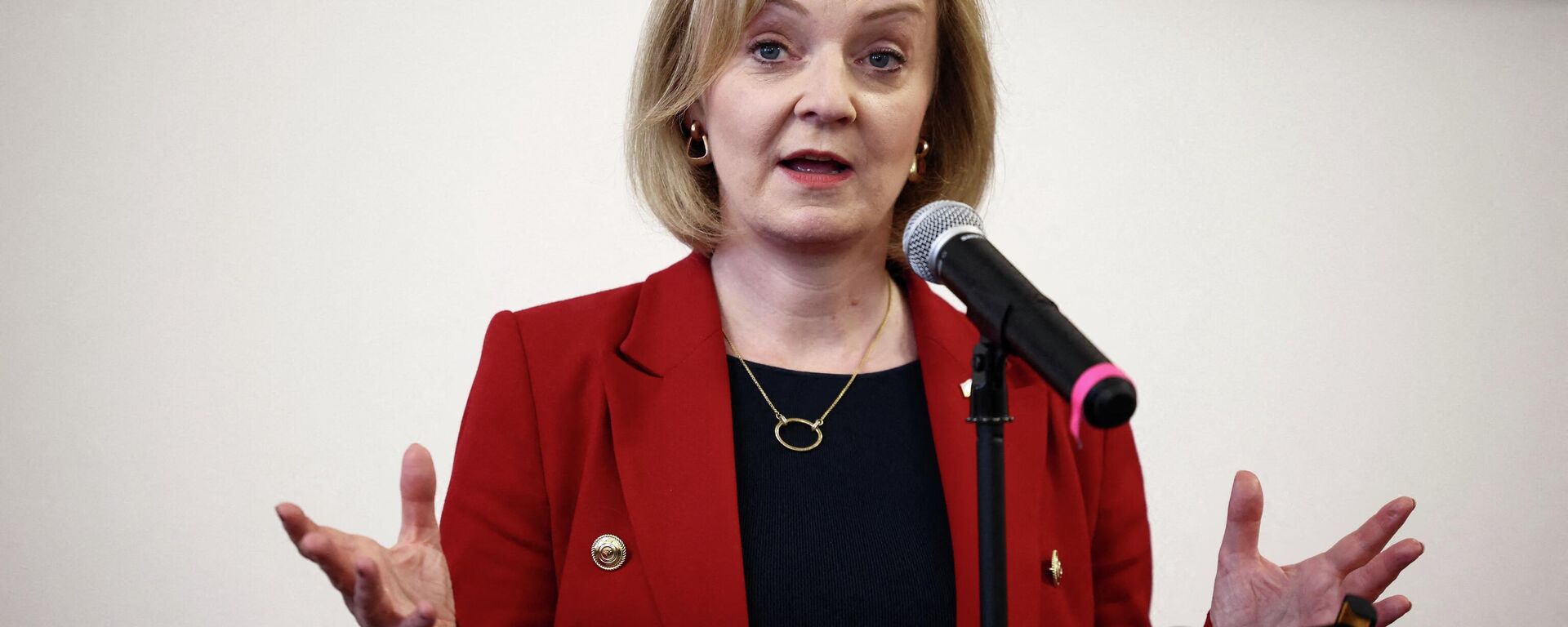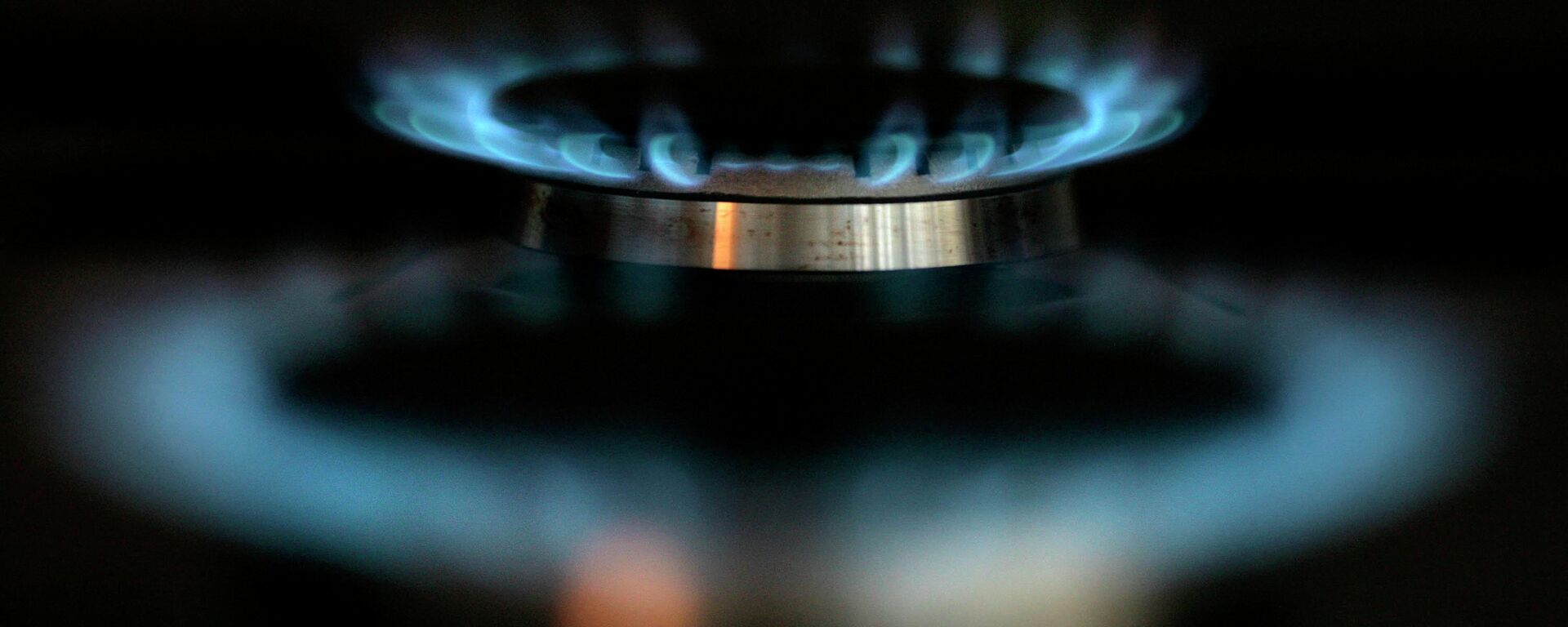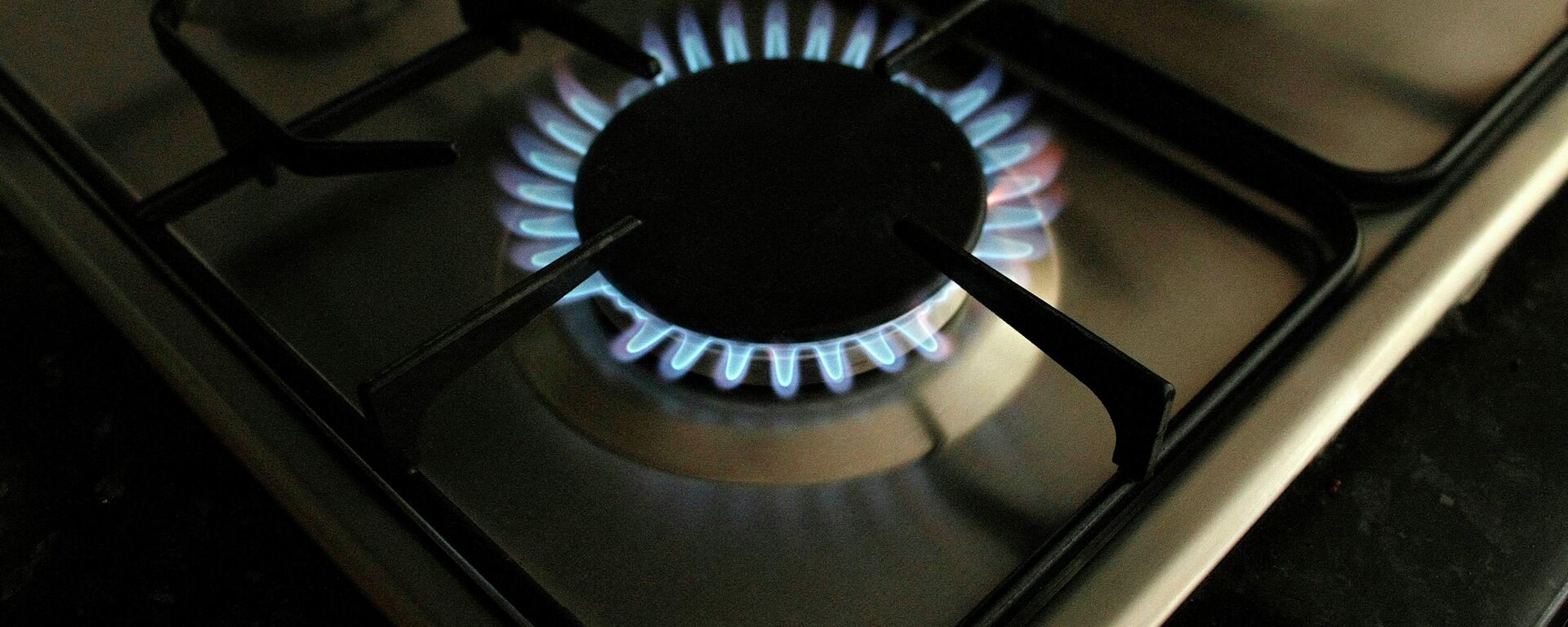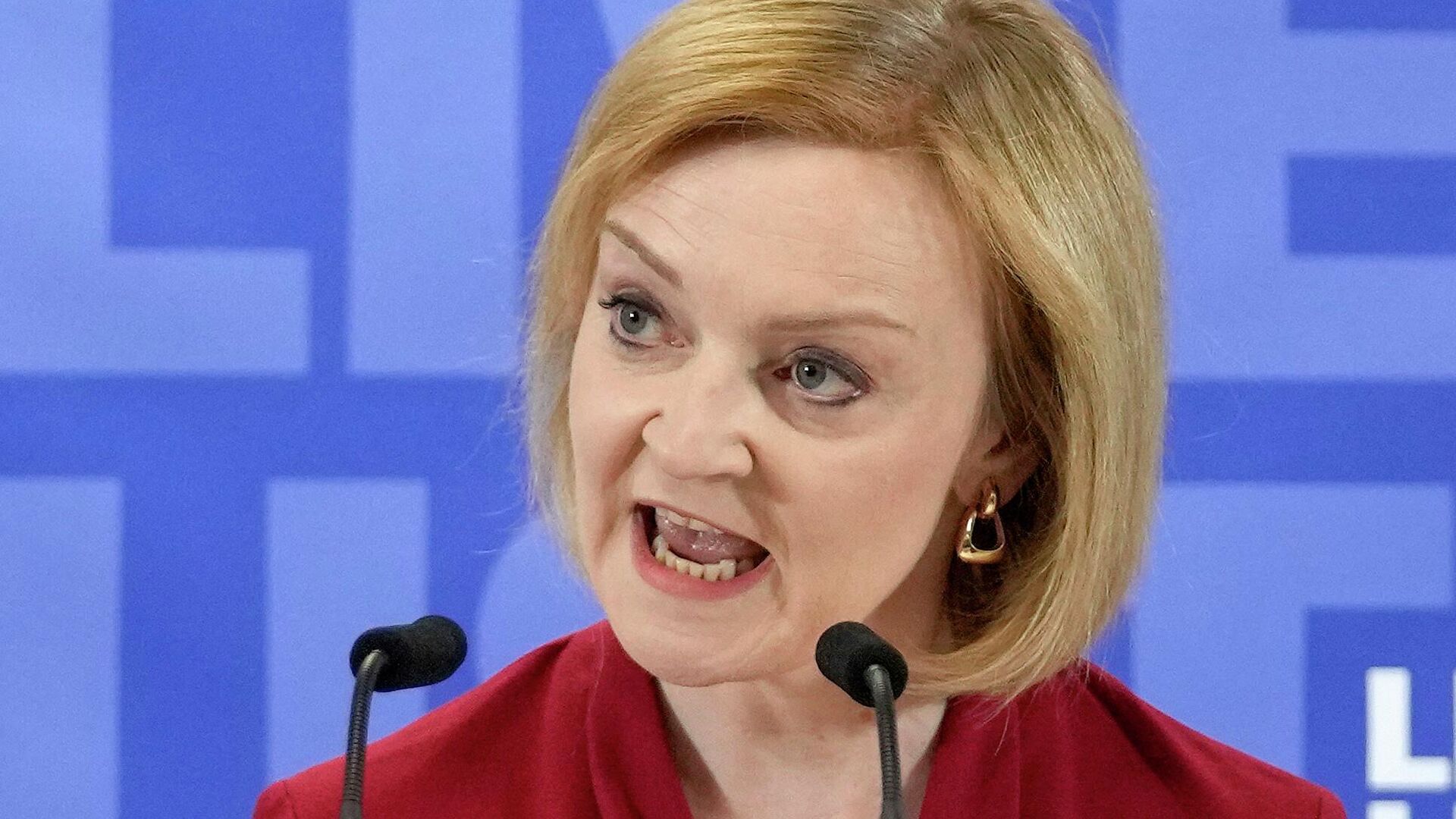https://sputnikglobe.com/20220829/truss-reportedly-mulls-emergency-tax-cuts-as-tory-mps-warn-aid-packages-dont-even-touch-the-sides-1100102506.html
Truss Reportedly Mulls Emergency Tax Cuts as Tory MPs Warn Aid Packages ‘Don’t Even Touch the Sides’
Truss Reportedly Mulls Emergency Tax Cuts as Tory MPs Warn Aid Packages ‘Don’t Even Touch the Sides’
Sputnik International
After UK energy regulator Ofgem raised the energy price cap by 80 percent on 26 August, bringing the average household gas and electricity bill to £3,549 a... 29.08.2022, Sputnik International
2022-08-29T06:05+0000
2022-08-29T06:05+0000
2023-05-28T15:20+0000
tory leadership race 2022
liz truss
boris johnson
rishi sunak
energy crisis
cost of living
united kingdom (uk)
https://cdn1.img.sputnikglobe.com/img/07e6/07/12/1097420908_0:201:1934:1289_1920x0_80_0_0_8a707e54a1932a3cdd6071606fe4687f.jpg
UK Foreign Secretary Liz Truss, the frontrunner in the Tory leadership race, is now considering emergency tax cuts amid increased pressure to outline plans to tackle the cost of living crunch.After regulator Ofgem announced on 26 August that the energy price cap would rise by 80 percent in October bringing the typical household gas and electricity bill to £3,549, Conservative MPs have called for both Tory leadership candidates, Truss and former chancellor Rishi Sunak, to outline a clear plan of increased support for struggling households and small businesses.Although some Conservative MPs are said to be increasingly worried about how UK households will manage to cover energy costs in the winter, others have pointed to the challenges faced by small businesses.“I hear that companies are seeing their bills rise by 300 percent. Businesses will close because some of these numbers are not viable,” a senior Tory backbencher reportedly said.Another MP added:“We need to give small and medium-sized businesses more financial support for energy bills. If they have to pass costs on to customers, it will only drive inflation further.”Tax Cuts, No ‘Handouts’Truss, who has already promised tax cuts worth £30Bln, reversing the planned 1.25 percent increase in national insurance contributions and a one-year moratorium on green energy levies, is mulling temporarily cutting VAT by 5 percent, The Sunday Telegraph reported.She is also said to be considering raising both the tax-free personal allowance and the threshold at which people start paying 40 percent income tax. Truss is “certain” to curtail Rishi Sunak’s four-year freeze on income tax thresholds introduced amid the COVID-19 pandemic burden last year.Liz Truss adamantly ruled out “hand-outs” to ease the burden on households, with targeted support likely to come in the shape of increased winter fuel allowance for pensioners or increased universal credit for people on fixed incomes, according to her campaign.She has also “ruled out” any further universal discounts to energy bills, such as the £400-worth discount announced in May by Sunak, the then chancellor, as part of a £15Bln energy support package.A decision on financial support, which is unlikely to include additional one-off payments, will be finalized after a new Conservative Party leader is announced on 5 September, according to Truss’s cited allies.‘Direct Gov’t Support’Meanwhile, Sunak’s allies have slammed the reportedly proposed VAT cut by Liz Truss as “flawed” and “regressive”.The former chancellor has promised to cut VAT on energy bills and insisted that direct government support must be provided to everyone. He also wrote in The Times that specific focus should be on low-income households and pensioners. He has also indicated a willingness to change welfare benefits and pensioners' winter fuel credits.The Conservative party leadership race has all but entered the home stretch, with recent polling of Tory members by ConservativeHome showing that Truss has a 32-point lead on her rival.Whoever enters 10 Downing Street will face a challenging winter thanks to the energy crisis. Gas prices are continuing to soar on international markets, along with the price of electricity. Energy consultancy Auxilione released a forecast on 26 August predicting a £7,700 average bill from April 2023.Over the weekend, outgoing Prime Minister Boris Johnson said that the nation had “enough resilience to get through the coming months,” and vowed that his successor would assemble a “huge package” of financial support.
https://sputnikglobe.com/20220825/opposition-party-claims-truss-misused-country-home-for-leadership-campaign-1099973050.html
https://sputnikglobe.com/20220821/heating-bill-in-switzerland-could-grow-by-104-per-month-amid-energy-crisis---reports-1099830509.html
https://sputnikglobe.com/20220828/johnson-predicts-harsh-months-for-uk-due-to-eye-watering-energy-bills-1100085140.html
united kingdom (uk)
Sputnik International
feedback@sputniknews.com
+74956456601
MIA „Rossiya Segodnya“
2022
News
en_EN
Sputnik International
feedback@sputniknews.com
+74956456601
MIA „Rossiya Segodnya“
Sputnik International
feedback@sputniknews.com
+74956456601
MIA „Rossiya Segodnya“
liz truss, boris johnson, rishi sunak, energy crisis, cost of living, united kingdom (uk)
liz truss, boris johnson, rishi sunak, energy crisis, cost of living, united kingdom (uk)
Truss Reportedly Mulls Emergency Tax Cuts as Tory MPs Warn Aid Packages ‘Don’t Even Touch the Sides’
06:05 GMT 29.08.2022 (Updated: 15:20 GMT 28.05.2023) After UK energy regulator Ofgem raised the energy price cap by 80 percent on 26 August, bringing the average household gas and electricity bill to £3,549 a year from October, both candidates to succeed Boris Johnson – Rishi Sunak and Liz Truss – have been under pressure to explain what they will do to ease the cost of living crunch.
UK Foreign Secretary Liz Truss, the frontrunner in the
Tory leadership race, is now considering emergency tax cuts amid increased pressure to outline plans to tackle the
cost of living crunch.
After regulator Ofgem announced on 26 August that the energy price cap would rise by 80 percent in October bringing the typical household gas and electricity bill to £3,549, Conservative MPs have called for both Tory leadership candidates, Truss and former chancellor Rishi Sunak, to outline a clear plan of increased support for struggling households and small businesses.
“I hear from first-time voters concerned about how they will get through this winter. Some of the existing aid packages don’t even touch the sides,” a senior Tory MP was cited by the Financial Times as saying.
Although some Conservative MPs are said to be increasingly worried about how UK households will manage to cover energy costs in the winter, others have pointed to the challenges faced by small businesses.
“I hear that companies are seeing their bills rise by 300 percent. Businesses will close because some of these numbers are not viable,” a senior Tory backbencher reportedly said.
“We need to give small and medium-sized businesses more financial support for energy bills. If they have to pass costs on to customers, it will only drive inflation further.”
Truss, who has already promised tax cuts worth £30Bln, reversing the planned 1.25 percent increase in national insurance contributions and a one-year moratorium on green energy levies, is mulling temporarily
cutting VAT by 5 percent, The Sunday Telegraph reported.
She is also said to be considering raising both the tax-free personal allowance and the threshold at which people start paying 40 percent income tax. Truss is “certain” to curtail Rishi Sunak’s four-year freeze on income tax thresholds introduced amid the COVID-19 pandemic burden last year.
“One thing you can be certain of is the freeze on thresholds is going to end early. When inflation is running at 10 percent you cannot have the thresholds frozen because you will have people paying a higher proportion of tax on their income at a time when bills are going through the roof,” a Truss ally stated.

25 August 2022, 12:43 GMT
Liz Truss adamantly ruled out “hand-outs” to ease the burden on households, with targeted support likely to come in the shape of increased winter fuel allowance for pensioners or increased universal credit for people on fixed incomes, according to her campaign.
She has also “ruled out” any further universal discounts to energy bills, such as the £400-worth discount announced in May by Sunak, the then chancellor, as part of a £15Bln energy support package.
A decision on financial support, which is unlikely to include additional one-off payments, will be finalized after a new Conservative Party leader is announced on 5 September, according to Truss’s cited allies.

21 August 2022, 16:36 GMT
Meanwhile, Sunak’s allies have slammed the reportedly proposed VAT cut by Liz Truss as “flawed” and “regressive”.
“No VAT is paid on commodities such as food, so it doesn’t help families pay their supermarket bills. Reducing VAT will benefit higher-income households more, giving little to no benefit to lower-income households who need the most help this winter,” an official from Sunak’s team was cited as telling media.
The former chancellor has promised to cut VAT on energy bills and insisted that direct government support must be provided to everyone. He also wrote in The Times that specific focus should be on low-income households and pensioners. He has also indicated a willingness to change welfare benefits and pensioners' winter fuel credits.
The
Conservative party leadership race has all but entered the home stretch, with recent polling of Tory members by ConservativeHome showing that Truss has a 32-point lead on her rival.

28 August 2022, 11:27 GMT
Whoever enters 10 Downing Street will face a challenging winter
thanks to the energy crisis. Gas prices are continuing to soar on international markets, along with the price of electricity. Energy consultancy Auxilione released a forecast on 26 August predicting a £7,700 average bill from April 2023.
Over the weekend, outgoing Prime Minister Boris Johnson said that the nation had “enough resilience to get through the coming months,” and vowed that his successor would assemble a “huge package” of
financial support.





